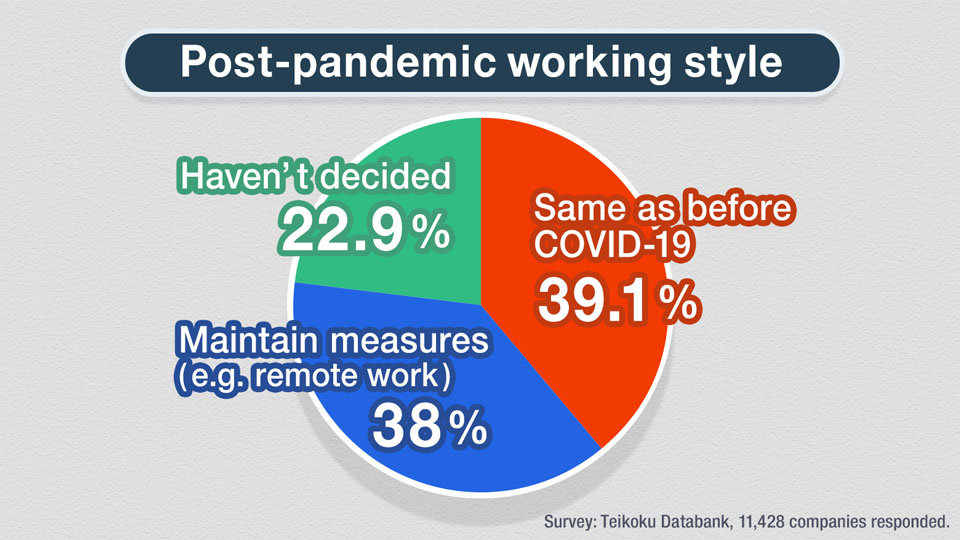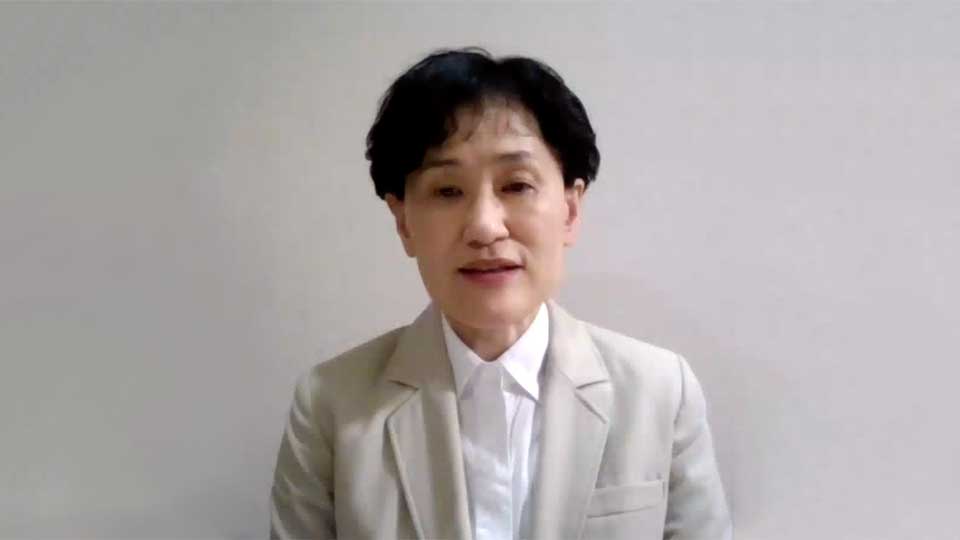Private credit check firm Teikoku Databank surveyed 27,628 companies in March, with 11,428 responding. They asked whether the firms would change the way their employees work when the government downgraded the virus.

The most common response, from 39.1 percent of respondents, was that they would revert to the way things were before the pandemic. That was slightly more than the 38 percent who said they planned to keep the new style.
IT firm brings employees back to office
Tokyo-based IT firm GMO Internet Group encouraged its employees to work from home when the infection was spreading. Officials say as many as 80 percent of its employees worked from home at one point during the pandemic.
But the firm reinstated its pre-pandemic working policies in February as infection numbers receded. All employees are now required to work at the office. The officials say they found that remote work led to poorer communication among employees and slower business operations.

One employee who joined the company during the pandemic says he worried about whether he could resolve work issues by himself while he worked from home. He says having communication with others is very good.
The survey found that some industries were more likely than others to revert to their former work styles. Firms involved in construction, agriculture, forestry and fisheries were more inclined to end work-from-home or other measures implemented during the pandemic.
A Tokyo-based company that produces parts using 3-D printers says remote working proved unsustainable for its business. A company official says they cannot check the quality of the products without physically viewing them. The firm has been asking all employees to come to the workplace since June last year.
Diversified work style to attract talent
Some companies are sticking with the diversified working style in the belief that it will help them attract top talent.
DeNA is an IT company in Tokyo with around 1,200 employees. It introduced teleworking after the pandemic broke out. The company says 99 percent of employees worked remotely at one point.
Its employees are now free to choose whether to work at the office or from home. On most days, 70-80 percent choose to work from home.
DeNA downsized its head office in 2021, from 3,000 desks to fewer than 700, on the assumption that teleworking would remain the dominant work style.
DeNA executives believe that the option to work from home will help them stay competitive in the job market and overcome the shortage of IT specialists.
Manager Shimizu Takuya says they believe they can now secure talented personnel regardless of where they live.
One current employee, a man in his forties, says working from home allows him a good work-life balance, and his family appreciates it, so he would be disappointed if the company asked him to work in the office again.
Expert: balance needed
An expert on labor policy says companies have to find the right balance for their needs.
Professor Tsukasaki Yuko of Taisho University says remote work can make it harder to manage employees. She says it can hinder communication, and prevent the formation of human networks.
But she also says an increasing number of people, especially the young, want flexible work styles and believe telework should be an option.

She suggests adjusting the style according to the employee's career, such as requiring new staff to come to the office for a certain period of time to interact with colleagues and receive thorough training, then allowing them to have a more diversified workstyle.
